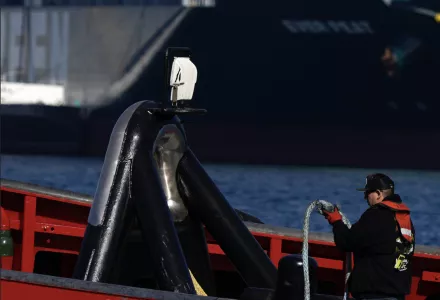
Anyone working in government or business strategy will have noticed the increasing number of discussions around supply chains in recent times. What was once a niche area of interest to economists and operations analysts has suddenly become a critical concern for political leaders and business executives. The attention being granted to supply chain strategy can seem baffling given there are a multitude of other, fundamental strategic challenges on the horizon, be it climate change, economic growth or national security. In comparison, supply chains seem innocuous. Yet our connotations with the term belie its strategic importance. As the architecture of the international economic system, supply chains are both the symptom and cause of the largescale issues that dominate both political and corporate strategic agendas. They both direct and enable the flow of goods and information across the world, making them a critical part of the calculus that informs the decision-making in both the public and private sector that flow into our collective ability to influence and respond to grand strategic challenges.
Without a doubt, the Covid-19 pandemic and its resultant economic disruption have been the key drivers for the increased attention given to supply chains over the last two years. With shortages in everything from toilet paper to semiconductor chips, it became clear that contemporary supply chain models are profoundly liable to disruption due to their just-in-time, globalized structures. In some cases, it has even damaged government’s ability to respond to the pandemic when shortages in critical strategic supplies in medical equipment or unequal access to vaccine production, storage and distribution. Even more recently, Russia’s invasion of Ukraine in February has resulted in a renewed effort across governments to reconsider their dependence on international supply chains for assured access to critical food and energy supplies.
Beyond recent events, one of the longer-term geopolitical trends that has shone a spotlight on supply chains as a strategic issue is the emergence of technological development as a competitive domain. This is especially as a result of the ascendancy of China and its shifting relations with the US, which identified China as its principal competitor for the first time in the Department of Defense’s 2022 National Defense Strategy. As countries vie dominance in specific strategic sectors of the international economy, countries are beginning to maneuver for control over the supply chains that enable manufacturing and trade within these sectors. This increased politicization of supply chains means that now more than ever, businesses have to be aware of the political context from which they operate. Especially in advanced sectors such as energy, health, information communications or advanced manufacturing where governments see a strategic benefit in asserting their dominance in the international trade system, businesses are vulnerable to a swathe of illegal activity conducted by both state and non-state actors, including cyberattacks, IP theft and, ultimately, permanent technology transfer. In their current configuration, the supply chain structures of many firms operating in the US in strategic sectors are set up in such a way that it is all too feasible for hostile actors to exploit their vulnerabilities. This not only poses a threat to the long-term viability of American businesses’ competitiveness, but it also affects national security and prosperity overall.
Scott, Hannah . “Never Breaking the Chain: The Economics and Politics of Creating an Effective National Supply Chain Strategy.” Belfer Center for Science and International Affairs, Harvard Kennedy School, August 2022




